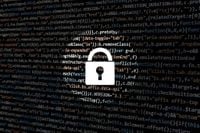In what cybersecurity experts are calling the largest credential breach in history, researchers from Cybernews have uncovered a staggering cache of more than 16 billion login credentials spanning some of the world's most prominent online platforms, including Apple, Google, Facebook, Telegram, and various government services. This massive leak, detailed in a report released recently, involves 30 exposed datasets containing anywhere from tens of millions to over 3.5 billion records each, collectively amounting to an unprecedented 16 billion login records.
The scale of this breach dwarfs previous incidents, such as a May 2025 leak involving 184 million credentials, which itself had raised alarms but now seems minuscule in comparison. According to Cybernews, these datasets are not simply recycled or old breaches resurfacing; instead, they represent fresh, weaponizable intelligence, ripe for exploitation by cybercriminals worldwide.
Vilius Petkauskas of Cybernews explained that the compromised data spans a vast array of services, including social media platforms, VPN providers, developer portals like GitHub, messaging apps such as Telegram, and even government services across more than 29 countries. The datasets often contain detailed information structured in a way typical of modern infostealer malware, with URLs, login names, passwords, tokens, cookies, and other metadata. This format makes the data especially dangerous for organizations and individuals lacking robust multi-factor authentication (MFA) or credential hygiene practices.
Cybersecurity experts warn that the breach could lead to a surge in account takeovers, identity theft, targeted phishing campaigns, ransomware attacks, and business email compromise (BEC) incidents. The cryptocurrency industry, in particular, faces heightened risks as attackers may exploit leaked credentials to access custodial wallets or cloud-stored password-based seed-phrase backups, potentially compromising private keys and assets.
Jeremiah Fowler, a noted data breach hunter who previously uncovered the 184 million record database, described the scale and breadth of this new breach as "a cybercriminal's dream working list." He highlighted that among the compromised accounts were over 220 government email addresses linked to countries including the US, UK, Australia, Canada, China, India, Israel, and Saudi Arabia. Such exposure poses serious national security risks, as hackers or foreign agents could potentially gain access to sensitive or even top-secret systems.
The origin of the datasets remains murky. Cybernews researchers speculate that while some data may have been collected by so-called "white hat" hackers or security researchers monitoring breaches, much of it likely stems from cybercriminals employing various infostealing malware. These malicious software variants stealthily extract credentials stored in browsers, email clients, messaging applications, and even cryptocurrency wallets, funneling the data to threat actors.
Despite the alarming magnitude, there is a small silver lining: the datasets were exposed only briefly before being locked down, limiting the window for potential exploitation. Still, the breadth of the leak means that a significant portion of the world's 5.5 billion internet users may have multiple accounts compromised, making the true scope of affected individuals difficult to ascertain.
Experts emphasize the urgent need for users and organizations to take immediate protective measures. Cybersecurity leaders like Darren Guccione, CEO of Keeper Security, stress how this breach underscores "just how easy it is for sensitive data to be unintentionally exposed online." Javvad Malik of KnowBe4 recommends adopting zero-trust security models, using password managers to generate and store strong, unique passwords, and enabling multi-factor authentication wherever possible.
Particularly effective are FIDO2-compliant hardware security keys, laptops, or smartphones for two-factor authentication, as these are resistant to phishing attacks that can compromise other forms of 2FA. Users are also urged to avoid storing recovery phrases or seed backups in unsecured cloud environments, especially in the cryptocurrency space, to mitigate risks of private key theft.
Cybernews offers free Digital Footprint scans, allowing individuals to check if their email addresses or personal data have been exposed online. This service aims to help users safeguard their digital identities in light of the growing prevalence of infostealer malware and large-scale data breaches.
World Host Group, a web hosting and domain provider implicated in managing one of the exposed databases, responded swiftly after being alerted to the breach by researchers. CEO Seb de Lemos stated that "it appears a fraudulent user signed up and uploaded illegal content to their server," highlighting the challenges hosting companies face in policing malicious activity on their platforms.
With cybercriminals now equipped with this vast trove of credentials, the risk of mass exploitation looms large. The leak provides a blueprint for attackers to launch sophisticated, targeted campaigns that could compromise personal accounts, corporate networks, and government systems alike. The cybersecurity community is rallying to raise awareness and promote best practices, but the onus also falls on individual users to act decisively.
In the face of this unprecedented breach, the message is clear: change your passwords immediately, enable multi-factor authentication, utilize strong and unique credentials, and remain vigilant against phishing attempts. The digital landscape has never been more perilous, and proactive defense measures are the best shield against the growing tide of cyber threats.


